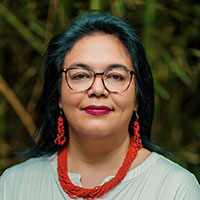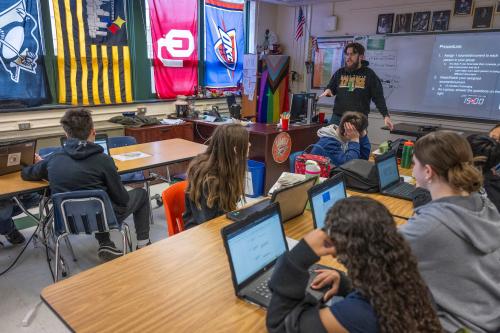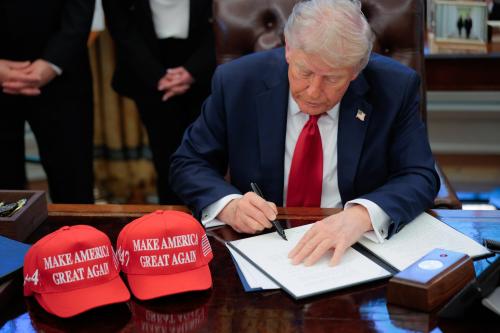To be born an Indigenous woman means descending from the star-women—atsinay kates in Wichí and huaqañi-huaqajñi in Qom1—who, at the dawn of time, chose to come down from the sky and live with the men on this land. Yet, in Argentina, being born an Indigenous woman means confronting the layered impacts of ethnic and gender discrimination, poverty, and the effects of a development model that displaces rural communities, a process accelerated in the last decades. In this context, Indigenous women are disproportionately burdened with domestic chores, caregiving, gender-based violence, and early motherhood. This has a marked impact on their educational trajectories. Close to one out of every ten Indigenous women over 55 years old never attended school and Indigenous women’s literacy rates are among the lowest in the country.
For all Indigenous children, boys and girls, becoming a student means confronting the effects of an educational system designed from its beginnings to be monocultural and monolingual. Ninety percent of Indigenous children who attend school still do not receive education in their languages. An important step to address the protection of Indigenous peoples’ rights to education that promotes and protects Indigenous cultures was the adoption of Intercultural Bilingual Educational (IBE) policies in 2006. The creation of a national IBE modality has contributed to teacher training, curriculum development, new texts, and resource allocation for Indigenous children’s education. Notably, the need for trained intercultural and bilingual teachers for IBE schools drove the approval of new teaching degrees and scholarships for Indigenous youth studying to become teachers. Close to thirty years of sustained work by Indigenous leaders and communities as well as allied activists, researchers, educators, and NGOs has contributed to the emergence of a new actor: formally certified Indigenous teachers.
Indigenous teachers make significant contributions to their communities by serving as cultural brokers, project designers, environmentalists, local agricultural promoters, land defenders, and translators, among others. They connect children and youth to educational opportunities and other rights. Indigenous teachers bring a wealth of knowledge, cultural values, and perspectives that—when its importance is recognized—enrich students learning and the life of the school, both within and outside IBE modalities. Given their own educational trajectories, Indigenous women teachers, particularly, are at the forefront of addressing limiting gender norms, attitudes and practices. They have the potential to establish meaningful connections with families and work together promoting a more just environment for Indigenous girls and boys rooted in Indigenous cultural values, such as complementarity, relationality, reciprocity, and collaboration.
In Argentina, despite the vital role Indigenous teachers play, educational policy has neglected to address the systemic barriers that Indigenous women encounter in their journey to become teachers. Subtle and explicit forms of ethnic and gender discrimination occur during the formative years of teachers and persist in their early careers. Furthermore, teacher education programs rarely examine how the curriculum might be maintaining limiting gender norms, beliefs, and practices. At the same time, teacher education programs can be strategic spaces for transformation. Challenging one form of discrimination, such as ethnic discrimination, demands addressing the interconnected challenges of gender and class discrimination. In these formative spaces, theory and practice could be deeply connected providing teachers experience and tools to address these inequalities in their future classrooms.
The number of IBE schools (754) and teaching degrees (at least 16) have opened an invaluable space with the potential to imagine and implement a different education born from within the Indigenous communities. Nevertheless, there is much to learn about how to support Indigenous teachers’ transformative action. First, exploring Indigenous women teachers’ educational pathways. Then, leveraging their knowledges to transcend ethnic and gendered inequalities and to create high quality learning environments.
During my fellowship as a 2025 Echidna Global Scholar at the Center for Universal Education at Brookings, I will focus on understanding Indigenous women’s experiences on their journey to becoming teachers, identifying barriers and supports in their path. Through storytelling interviews, focus groups, and participatory workshops with Indigenous students, leaders, language and culture promoters, and teacher educators, we will co-construct approaches and tools that incorporate their insights to protect Indigenous girls’ and women’s rights to education, an education reimagined and enriched by Indigenous knowledges and values.
For more than two decades, I have been working in classrooms, schools, and universities with teachers in Argentina, Chile, Bolivia, Ecuador, México and the United States. I have worked with Qom, Moqoit, Wichí and Weenhayek teachers, witnessing their love for their students, the care for their families, and the hopes for a more just future. Recognizing the challenging times we are facing, I share the vision and commitment that Indigenous teachers strive to build daily in their classrooms and communities. And I resonate with the words of this poem by Wichí intellectual Lecko Zamora: “Bright days, they will come. / The days when the Wichí will dance, they will come. / The flowers from the trees, they will come./ The time of the fish, it will come. / The time of the women-star is now.”
-
Footnotes
- I am thankful to prof. Génaro Segundo for his assitance with Qom language.
The Brookings Institution is committed to quality, independence, and impact.
We are supported by a diverse array of funders. In line with our values and policies, each Brookings publication represents the sole views of its author(s).




Commentary
Leveraging Indigenous women teachers’ wisdom for gender-transformative action in Argentina
September 18, 2025